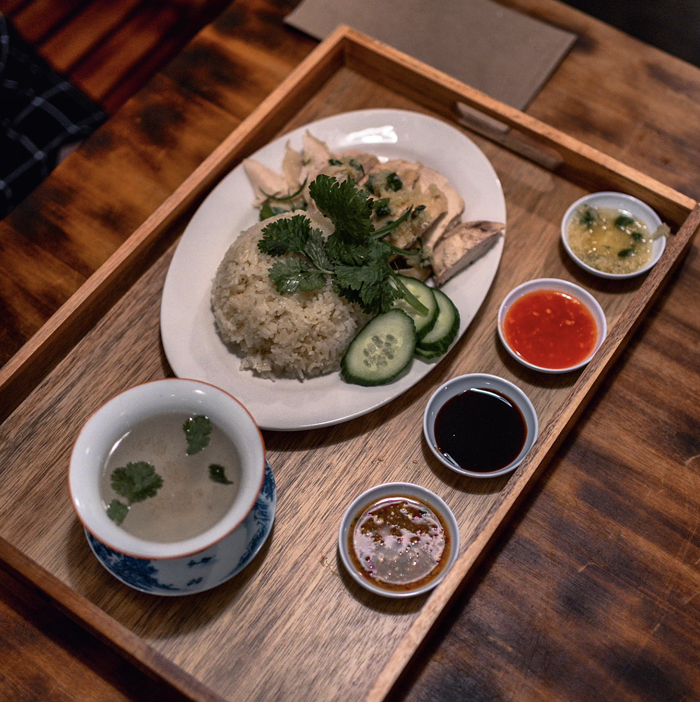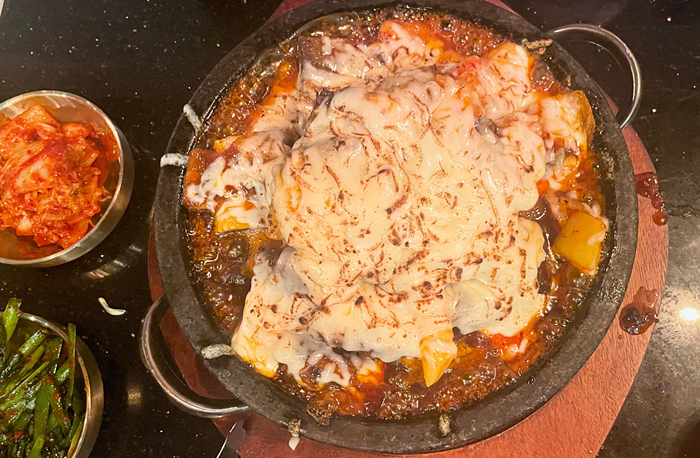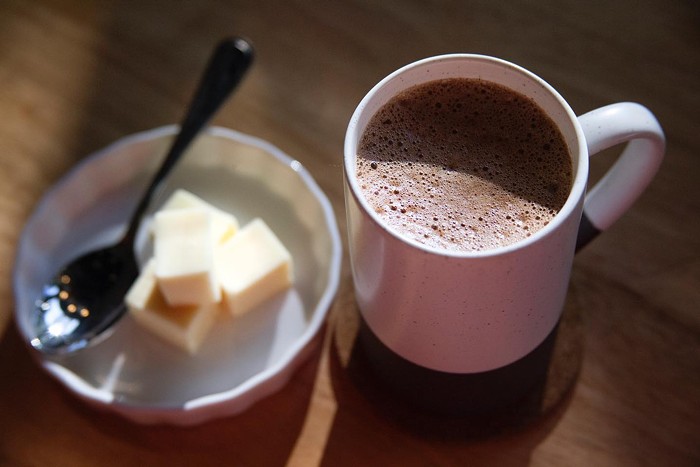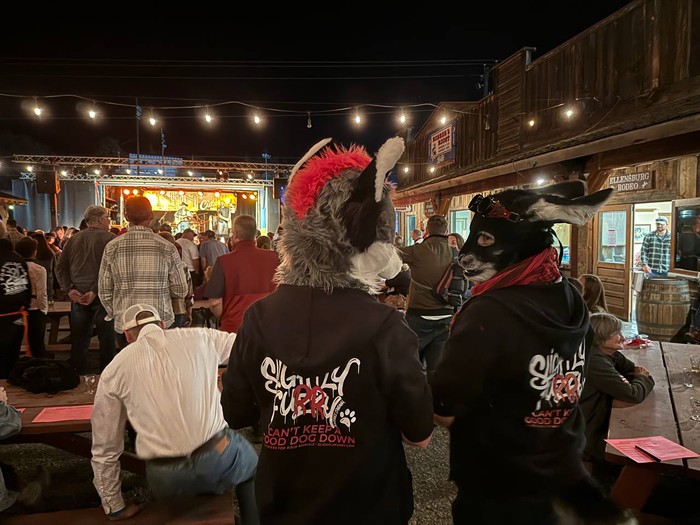Cafe Flora was born of a utopian dream. It was to be—according to the harmonious views of three Madison Valley friends—the perfect restaurant: community based, using local and organic ingredients whenever possible, and fully, ambitiously vegetarian. Upon opening in October 1991, Cafe Flora quickly established itself as the Seattle destination for upscale meat-free cuisine—not haute, but a dining experience offering the culinary refinement and light extravagance of, say, a Tom Douglas restaurant.
For the next 17 years, Flora stuck to its winning formula, a key component of which was an eagerness to please all who entered. For vegetarians, Flora aspired to be heaven on earth, presenting rigorously ethical, ecofriendly cuisine that was good enough to inspire lust. (Flora harnesses the power of salt, cheese, cream sauces, and the deep fryer in ways more pious vegetarian joints—Carmelita, Sutra—do not, while also maintaining a roster of vegan and gluten-free items.) For carnivores, Flora aimed for much the same, typically achieving something less than lust and more like willingness to join vegetarian friends on their Flora adventures (which is more than 99 percent of vegetarian restaurants can claim). The end result: a one-of-a-kind experience for vegetarians and those who love them, repeated daily with no major changes for a decade and a half.
This stasis was given a kick in the pants last August, when Cafe Flora ownership passed from the departing David Foecke to then–general manager Nat Stratton-Clarke, who announced the forthcoming renovation of the dining room (the garden atrium would remain as-is) and Flora's recommitment to vegetarian cuisine "Our Guests Will Rave About" (per the menu).
The Flora 2.0 dining room is an improvement, with the early-'90s time capsule (clunky banquettes, bad upholstery, and a general feeling of being trapped in a Nagel print) replaced by a tidy new simplicity. But it isn't quite simple enough. Scattered around the otherwise stripped-down room is a wealth of rustic/rural chic—a decor trend that's already seen its 16th minute—including a stretch of white-picket fence, a metal farm-gate cordoning off the bar, the rusty head of a pickax, and a weathered watering can. It's meant to symbolize Flora's intimate relations with a host of Northwest farms, but it looks cluttered and goofy, like the set of a farm-themed children's television show. It wouldn't be difficult to fix, requiring just a purge of knickknacks to leave the clean essentials: simple wooden chairs and tables, a concrete floor, a bright wall of windows.
The menu, meanwhile, looks much as it always has, featuring Flora's never-say-die standards (the famous Oaxaca tacos and portobello Wellington) along with a variety of seasonally inspired vegetable raviolis, farros, and risottos conceived by executive chef Janine Doran. At dinner in the garden atrium (which, as you can guess, is awash in literal flora), I started with the fried avocado ($7), sliced and battered in a crispy spiced cornmeal, served with cayenne aioli and papaya chutney. It was, in essence, a high-concept vegan spin on fried cheese, and it was delicious, in that totally-vegetarian-but-that-doesn't-mean-it's-good-for-you way that's one of Flora's best strengths. For an entrée, I ordered the spring mint pea and porcini risotto ($17.50), a seasonal dish and a typical Flora experiment, wherein inspired components (a grilled portabellini mushroom stuffed with a dazzling fresh-mint-pea mash) rubbed up against the mundane or worse (the risotto itself, a bland, uncreamy Arborio-rice concoction that was thoroughly dull). My friend fared better with the tried-and-true Oaxaca tacos ($15). These roasted corn tortillas filled with cheddar-and-smoky-mozzarella- cheese-infused mashed potatoes and drizzled with lime crème fraîche achieve a state of full indulgence that's blown the minds of vegetarians for nearly two decades, and they had a similar effect on my carnivorous partner, who also praised the fresh pico de gallo and feta-spiked black-bean stew that's forever accompanied the dish.
A couple of lunch visits played out in much the same manner: some fresh awesomeness, another less-than-completely-successful seasonal excursion, more reliable standards. I'd never had Flora's French dip ($12) before: The meat is played by strips of portobello mushroom (garnished with caramelized onion and Swiss cheese), the jus is a roasted garlic–mushroom broth, and the results are amazing. The mushroom is smoky, the jus is appropriately salty, and the bread is perfect—an herbed baguette from Columbia City Bakery with a dense layer of poppy seeds on its crust and the sturdiness to withstand a good soaking and still offer a fight. It's the finest veggie French dip I've ever had, with its broth-soaked roll exploding with flavor in that perfectly narcotic French-dip way. But artichoke croquettes ($14 for two) were ultimately unrewarding. While they did a good job of approximating crab cakes, everything on the plate (including some sadly overcooked Dykstra Farm asparagus spears) ultimately sunk into mushiness. Two other dishes were just fine, just like they're just fine at almost any Mexican or Thai restaurant: huevos Francisco (corn tortillas, black-bean stew, over-medium eggs, and more of that excellent pico de gallo, $10) and deep-fried coconut tofu with sweet chili sauce ($8).
My most recent lunch visit was marked by unfortunately lousy service, with starters and entrées landing at the same time from a waiter we had to bug for basics. The prices are not cheap, and sometimes-unspectacular food and occasional poor service can tip the scales from "worth it" to "maybe not." Cafe Flora remains a worthy laboratory for ambitious vegetarian cuisine, but no one will blame you if you use this Seattle landmark only as an upscale Oaxaca-taco stand. ![]()
This story has been updated since its original publication.



















